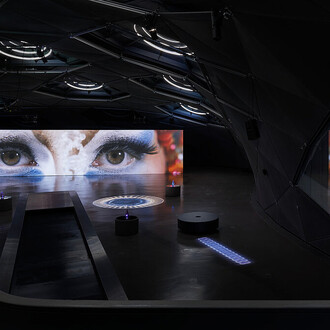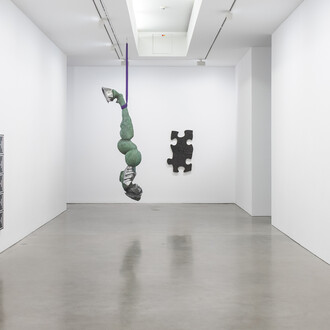After Michelangelo Pistoletto won the Imperial Paemium - the prestigious Japanese prize for culture in 2013 he went back again to Italy to extend a reward to another great exponent of Arte Povera: Giuseppe Penone.
Born in 1947 Penone is one of the most known and internationally respected Italian artists as evidenced by his many solo show around the world: Toyota Municipal Museum of Art, Toyota (2009), MAMbo Museo d’arte moderna, Bologna (2008), Museum Kurhaus, Kleve (2006), Centre Georges Pompidou, Paris (2004), Centro Galego de Arte Contemporanea, Santiago de Compostela (1999), Forth Worth Art Museum, Museum of Modern Art, Chicago (1984), National Gallery of Canada, Ottawa (1983), etc.
Penone characterizes his poetry with a constant conflict between the paths between culture - nature and nature - culture in the knowledge that the division between human and nature is a forced and unreal vision of reality. This is not a nostalgic or idealistic relationship with nature but a true reversal of perspective. For the artist, it is necessary to "overthrow our own eyes" in the sense of eliminating or at least overcome the conventions that are formed in the connection between logic and view. In relation with the space that surrounds us in fact we have to prefer the view to the touch. Taping a material of nature for example a tree means to leave a trace, a mark that will stand as a sign in its growth or its transformation. It is an encounter between subjects (the human body on the one hand and the wood of the trunk on the other) ritualistic and archetypal-like.
The tree, as mentioned, is one of the most common elements in the artistic practice of Penone. In an interview with Arabella Natalini "The logic of the matter" in the occasion of the exhibition "Giuseppe Penone. Vegetation Perspective "in Florence Penone says: "Trees are for me an idea of a perfect sculpture, if you consider that the tree is a living being that fossilized its life in its form and that every part, every leaf, every single branch of it is necessarily linked to its survival, to its life; There is nothing random about a tree, anything in excess or shortage, its shape is exactly what it needs to live and for its survival”. "The tree, an example of perfect sculpture, has always been associated with the human figure, just as in the construction of its existence internalizes all the gestures of his past, of its personal history. For this reason, in the works of Penone the trees are carved in such a way as to bring out the experience of the tree itself. It is a journey through the growth of the tree aiming to find a precise moment in the life of that tree, something that happened long ago and still lives with and in the tree.
In his practice Penone uses the wonder as a form of knowledge, finding nature, the original form of the things under their current circumstances. In the aforementioned interview, the artist says: "the wonder of a child is to everything that surrounds it, the adult experience less surprise than the reality the child lives every day and this astonishment, however, is uncovered again and appears, for example, during a journey. When we move to a context that is not our own, we begin to reassess, to rethink many aspects of the reality that surrounds us; and this is the interest of the trip, the great success of the necessity of the travel. The wonder that is related to the work is the unexpected, the aspect not visible and revealed of the reality that surrounds us, and this is a bit 'the function of artist’s work, whether it's a work of writing, painting, sculpture or music. Wonder is also a source of impact, we remember very well the things that amaze us”.
Forte Belvedere and Giardino di Boboli, both UNESCO World Heritage Sites, will be home during the summer to a great exhibition curated by Arabella Natalini and Sergio Risaliti dedicated to Giuseppe Penone offering to the many visitors of Florence the chance to see live the works of the famous artist.
Forte di Belvedere
Via di San Leonardo, 1
Florence 50100 Italy
Ph. +39 055 055
Opening hours
Tuesday - Sunday
From 10am to 8pm
Giardino di Boboli
Piazza Pitti, 1
Florence 50125 Italy
Ph. +39 055 2298732
Opening hours
July – August from 8.15 to 19.30
September – October from 8.15 to 18.30
Closed on the first and last Monday of the month















